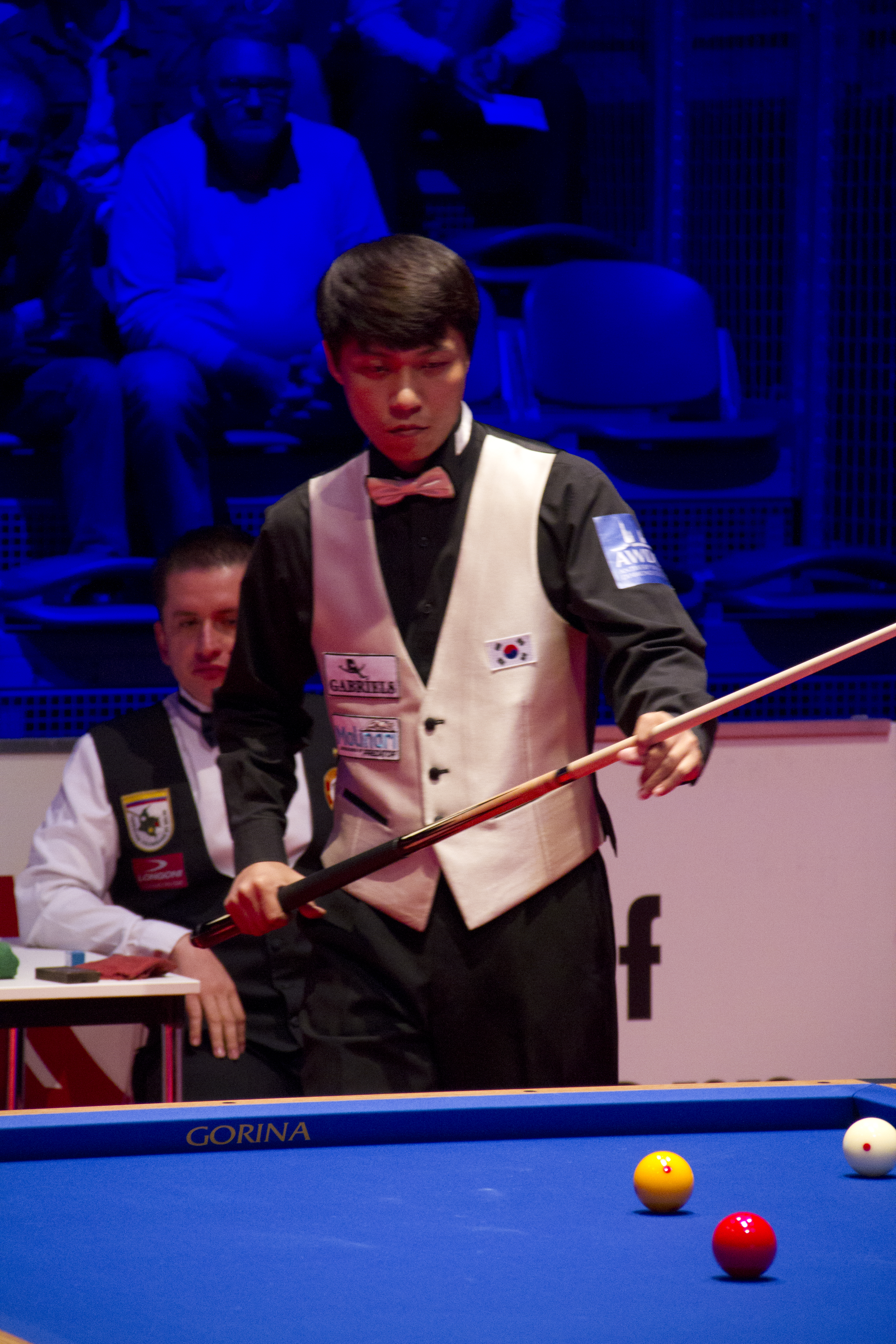1. Early Life and Background
Choi Sung-won's early life provided a unique environment that fostered his prodigious talent in billiards, setting the stage for his future professional career.
1.1. Childhood and Introduction to Billiards
Choi Sung-won's introduction to billiards occurred at an exceptionally young age, largely due to his father's decision to open a billiards hall. This early exposure allowed him to develop a deep understanding and remarkable skill in the sport from his childhood. By the time he was in the third grade of elementary school, he was already achieving an impressive amateur average of 250 points, a testament to his innate talent and dedication. His abilities continued to grow rapidly, and by his second year of high school, he was proficiently playing four-ball billiards at a 500-point level.
2. Playing Career
Choi Sung-won's professional career is marked by consistent performance and several landmark achievements that solidified his status as a world-class billiards player.
2.1. Professional Debut and Early Years
Choi Sung-won officially began his professional billiards career around September 2002. In his early years as a player, he steadily built his reputation and honed his skills, laying the groundwork for the major successes that would follow in subsequent tournaments.
2.2. Major Achievements and World Ranking
Choi Sung-won's career saw him achieve several significant victories on the international stage. In 2011, he secured a major title by winning the AGIPI Billiard Masters held in France. This was followed by another notable triumph in 2012, when he claimed the championship at the Three-Cushion World Cup in Turkey.
His most historic achievement came on November 30, 2014, at the UMB World Three-cushion Championship held in the Jamsil Sports Complex Gymnastics Arena in Seoul. In a thrilling final match, Choi faced Swedish billiards legend Torbjorn Blomdahl and emerged victorious with a score of 40-37. This monumental win not only crowned him as the World Champion but also propelled him from his previous world ranking of sixth to the coveted position of world number one. As of February 16, 2015, he maintained this top ranking, solidifying his position as a dominant force in professional billiards.

3. Personal Profile
Beyond his technical prowess, Choi Sung-won possesses a distinctive public persona, shaped by his unique nickname and the significant influence of his mentors.
3.1. Nickname and Mentors
Choi Sung-won is widely known by his distinctive nickname, 'Mosquito' (모기MogiKorean). This moniker is commonly used among fans and fellow players in the billiards community.
His formative years in billiards were significantly shaped by a mentor known as "Orang," a legendary figure in 'jukbang' (a type of informal, high-stakes billiards game prevalent in Korea) during the 1980s and 1990s. Choi learned from Orang at the Haeundae Hollywood billiards hall in Busan, which has since closed. Notably, other prominent Korean billiards players, such as Jeong Chan-guk and the late Kim Kyung-ryul, also benefited from Orang's instruction in Busan, highlighting the impact of this informal mentorship network on Korean billiards talent.
4. Legacy and Impact
Choi Sung-won's career transcends individual achievements; he holds a significant place in the history of billiards, particularly for his transformative impact on the sport within South Korea.
4.1. Impact on Korean Billiards
Choi Sung-won's victory at the 2014 UMB World Three-cushion Championship and his subsequent ascent to the world number one ranking marked an unprecedented milestone in the history of Korean billiards. Prior to his achievements, no Korean player had ever reached such heights in the sport. His success shattered existing barriers and demonstrated the potential for Korean players to compete and excel at the highest international levels. This pioneering feat not only brought immense recognition to himself but also served as a powerful source of inspiration for aspiring billiards players and significantly boosted the sport's popularity and development within South Korea. His symbolic significance as the first Korean to achieve these dual distinctions irrevocably altered the landscape of Korean billiards, ushering in a new era of growth and competitive prominence.